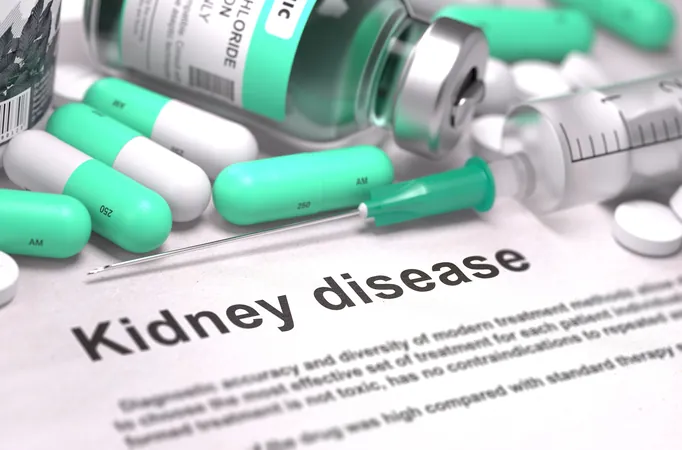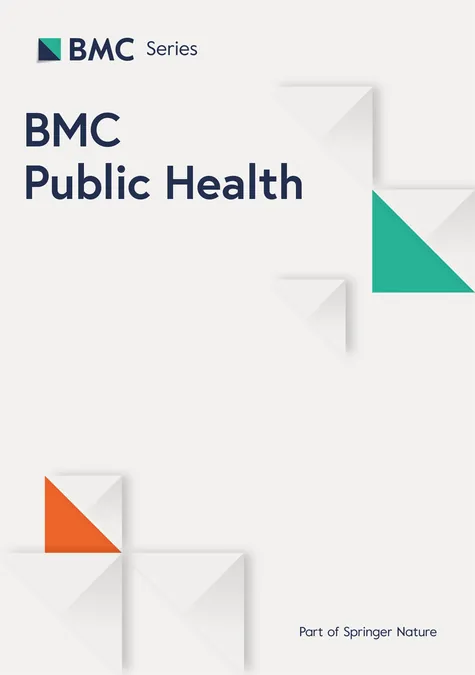
Groundbreaking Meta-Analysis Reveals SGLT2 Inhibitors Dramatically Improve Anemia in Chronic Kidney Disease Patients!
2025-04-08
Author: Li
Recent Findings
Recent findings from a systematic review and meta-analysis suggest that sodium-glucose cotransporter 2 (SGLT2) inhibitors, widely recognized for their benefits in managing chronic kidney disease (CKD), may also play a vital role in improving anemia markers in affected patients. The analysis, published in the Journal of Clinical Pharmacy and Therapeutics, highlights the effects of drugs like empagliflozin (Jardiance), dapagliflozin (Farxiga), and canagliflozin (Invokana) on hemoglobin (Hb) and hematocrit (Hct) levels in populations suffering from CKD.
Clinical Recommendations
These SGLT2 inhibitors have garnered attention not just for their ability to slow CKD progression, but also for their cardiovascular protective effects. According to the recently updated KDIGO 2024 guidelines, SGLT2 inhibitors are highly recommended for patients with type 2 diabetes and CKD, particularly those with an estimated glomerular filtration rate (eGFR) of 20 ml/min per 1.73 m² or higher.
Study Insights
The systematic review evaluated randomized controlled trials focusing on the impact of these inhibitors on anemia—a common and serious complication in CKD patients. Analyzing data from multiple studies, the researchers found significant increases in both Hb and Hct levels among patients taking SGLT2 inhibitors compared to control groups. Specifically, the meta-analysis included data from 5 studies on Hb with over 3300 participants and 3 studies on Hct involving nearly 1400 participants.
Results Overview
The results showed a notable enhancement in Hb levels, quantified at a standard difference in means of -0.350, while Hct levels displayed a similar uptrend as well. The authors attributed these benefits to mechanisms including improved tissue oxygen delivery, diuretic effects reducing plasma volume, and increased stimulation of erythropoietin secretion.
Variations in Effectiveness
Interestingly, the effects varied based on the SGLT2 inhibitor used, its dosage, and the duration of treatment. For instance, dapagliflozin exhibited consistent increases in Hct levels over four months, while canagliflozin showed sustained benefits at higher doses over a more extended period. However, higher doses did not lead to dramatically better outcomes, suggesting that lower doses could potentially yield similar results with reduced risks of adverse effects.
Conclusions from the Authors
The authors concluded, "Our meta-analysis demonstrates a significant relationship between SGLT2 inhibitor use and increased Hb and Hct levels in CKD patients. The anemia-correcting benefits can be achieved with modest dosing, highlighting the safety and effectiveness of SGLT2 inhibitors in adjusting both renal function and cardiovascular health."
Future Research Directions
This meta-analysis underscores the potential of SGLT2 inhibitors to transform treatment approaches for CKD, suggesting that they play a comprehensive role in managing anemia and improving overall clinical outcomes. Future research should focus on minimizing variations in study protocols and considering a wider range of participant comorbidities to further illuminate the efficacy of SGLT2 inhibitors on anemia in CKD patients.
Looking Ahead
As the medical community continues to explore innovative treatment options, this exciting development may pave the way for enhanced health strategies that could significantly improve the quality of life for millions living with chronic kidney disease. Stay tuned for more updates on this topic as ongoing studies unfold!


 Brasil (PT)
Brasil (PT)
 Canada (EN)
Canada (EN)
 Chile (ES)
Chile (ES)
 Česko (CS)
Česko (CS)
 대한민국 (KO)
대한민국 (KO)
 España (ES)
España (ES)
 France (FR)
France (FR)
 Hong Kong (EN)
Hong Kong (EN)
 Italia (IT)
Italia (IT)
 日本 (JA)
日本 (JA)
 Magyarország (HU)
Magyarország (HU)
 Norge (NO)
Norge (NO)
 Polska (PL)
Polska (PL)
 Schweiz (DE)
Schweiz (DE)
 Singapore (EN)
Singapore (EN)
 Sverige (SV)
Sverige (SV)
 Suomi (FI)
Suomi (FI)
 Türkiye (TR)
Türkiye (TR)
 الإمارات العربية المتحدة (AR)
الإمارات العربية المتحدة (AR)